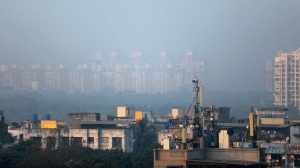Protecting future Dubeys
The full text of the government resolution, issued on April 21, empowering the Central Vigilance Commission to act on the complaints of whis...

The full text of the government resolution, issued on April 21, empowering the Central Vigilance Commission to act on the complaints of whistle-blowers and to protect them:
Ministry of Personnel, Public Grievances and Pensions Department of Personnel and TrainingResolution New Delhi, the 21st April, 2004
No.371/12/2002-AVD-III: Whereas while hearing Writ Petition C No. 539/2003 regarding the murder of Shri Satyendra Dubey, the Supreme Court desired that pending enactment of a suitable legislation, suitable machinery should be put in place for acting on complaints from 8216;8216;whistle-blowers8217;8217;.
And whereas The Public Interest Disclosure and Protection of Informers8217; Bill, 2002, drafted by the Law Commission is under examination.
Now, therefore, the Central Government hereby resolves as under:
1. The Central Vigilance Commission CVC is hereby authorised as the designated agency to receive written complaints or disclosures on any allegation of corruption or of misuse of office by any employee of the Central Government or of any corporation established by or under any Central Act, government companies, societies or local authorities owned or controlled by the Central Government. The disclosure or complaint shall contain as full particulars as possible and shall be accompanied by supporting documents or other material.
2. The designated agency may, if it deems fit call for further information or particulars from the persons making the disclosure. If the complaint is anonymous, the designated agency shall not take any action in the matter.
3. Notwithstanding anything contained in the Official Secrets Act, 1923, any public servant other than those referred to in clauses a to d of Article 33 of the Constitution, or any other person including any non-governmental organisation, may make a written disclosure to the designated agency.
4.If the complaint is accompanied by particulars of the person making the complaint, the designated agency shall take the following steps:
8226; The designated agency will ascertain from the complainant whether he was the person who made the complaint or not.
8226; The identity of the complainant will not be revealed unless the complainant himself has made the details of the complaint either public or disclosed his identity to any other office or authority.
8226; After concealing the identity of the complainant, the designated agency shall make, in the first instance, discreet inquiries to ascertain if there is any basis of proceeding further with the complaint. For this purpose, the designated agency shall devise an appropriate machinery.
8226; Either as a result of the discreet inquiry, or on the basis of the complaint itself without any inquiry, if the designated agency is of the opinion that the matter requires to be investigated further, the designated agency shall officially seek comments or explanations from the head of the department of the concerned organisation or office. While doing so, the designated agency shall not disclose the identity of the informant and also shall request the concerned head of the organisation to keep the identity of the informant secret, if for any reason, the concerned head comes to know the identity.
8226; After obtaining the response of the concerned organisation, if the designated agency is of the opinion that the investigations reveal either misuse of office or substantiate allegations of corruption, the designated agency shall recommend appropriate action to the concerned government department or organisation. These shall, inter alia, include following:
a Appropriate proceedings to be initiated against the concerned government servant.
b Appropriate administrative steps for redressing the loss caused to the Government as a result of the corrupt act or misuse of office, as the case may be.
c Recommend to the appropriate authority/ agency initiation of criminal proceedings in suitable cases, if warranted by the facts and circumstances of the case.
d Recommend taking of corrective measures to prevent recurrence of such events in future.
5. For the purpose of making discreet inquiry or obtaining information from the concerned organisation, the designated agency shall be authorised to call upon the CBI or the police authorities, as considered necessary, to render all assistance to complete the investigation pursuant to the complaint received.
6. If any person is aggrieved by any action on the ground, that he is being victimised due to the fact that he had filed a complaint or disclosure, he may file an application before the designated agency seeking redress in the matter, who shall take such action, as deemed fit. The designated agency may give suitable directions to the concerned public servant or the public authority as the case may be.
7. Either on the application of the complainant, or on the basis of the information gathered, if the designated agency is of the opinion that either the complainant or the witnesses need protection, the designated agency shall issue appropriate directions to the concerned government authorities.
8. The machinery evolved herein shall be in addition to the existing mechanisms in place. However, secrecy of identity shall be observed, only if the complaint is received under this machinery.
9. In case the designated agency finds the complaint to be motivated or vexatious, the designated agency shall be at liberty to take appropriate steps.
10. The designated agency shall not entertain or inquire into any disclosure:
a in respect of which a formal and public inquiry has been ordered under the Public Servants Inquiries Act, 1850; or
b in respect of a matter which has been referred for inquiry under the Commissions of Inquiry Act, 1952.
11.In the event of the identity of the informant being disclosed in spite of the designated agency8217;s directions to the contrary, the designated agency is authorised to initiate appropriate action as per extant regulations against the person or agency making such disclosure.
12.The machinery created herein shall operate till Parliament passes a law on the subject.
Smt. Manjulika Gautam, Addl. Secy
Beginning with Assistant Editor Amitav Ranjan8217;s exclusive report on the complaint of alleged corruption that NHAI engineer Satyendra Dubey sent to the Prime Minister8217;s Office, The Indian Express has kept the spotlights trained on the Dubey story
For more
- 01
- 02
- 03
- 04
- 05































